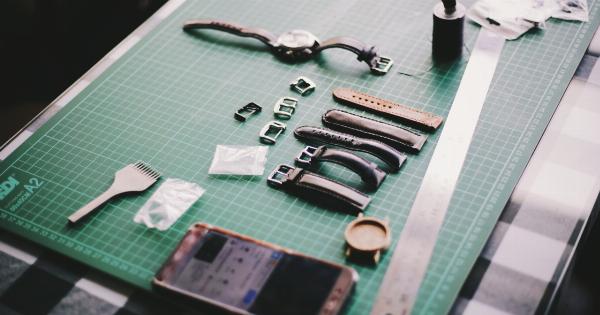As we age, our skin undergoes several changes that can be frustrating, including wrinkles, age spots, and dryness.
While it’s impossible to completely stop the clock of aging, there are steps you can take to help protect your skin and slow down the process. Here are some tips:.
1. Stay hydrated
Drinking plenty of water is essential for keeping your skin hydrated and healthy. When your skin is dehydrated, it’s more prone to damage and wrinkles. Aim to drink at least eight glasses of water a day for optimal hydration.
2. Protect your skin from the sun
The sun’s ultraviolet (UV) rays can cause damage to your skin, leading to wrinkles and age spots. Protect your skin by wearing a broad-spectrum sunscreen with an SPF of at least 30, even on cloudy days.
Remember to reapply every two hours if you’re outdoors. Wear protective clothing, such as long-sleeved shirts and wide-brimmed hats, to further shield your skin from the sun.
3. Use a retinoid cream
Retinoid creams, which are derived from vitamin A, have been shown to help reduce fine lines and wrinkles, as well as improve skin texture and tone.
Look for creams that contain retinol, the over-the-counter version of retinoids, or talk to your dermatologist about prescription-strength retinoids.
4. Get enough sleep
Getting enough sleep is important for your overall health, but it can also play a role in the health of your skin. When you sleep, your body has a chance to recharge and repair itself, including the skin.
Aim for seven to eight hours of sleep each night to reap the benefits.
5. Quit smoking
Smoking accelerates the aging process, leading to wrinkles and a dull complexion. Quitting smoking can help improve the health of your skin and slow down the aging process.
6. Use a gentle cleanser
Cleansing your skin is important for removing dirt, oil, and makeup, but using harsh cleansers can strip your skin of its natural oils and lead to dryness and irritation.
Use a gentle cleanser that is formulated for your skin type to help maintain a healthy balance of oils on your skin.
7. Eat a healthy diet
Eating a diet full of fruits and vegetables, lean proteins, and healthy fats can provide your skin with the nutrients it needs to stay healthy.
Include foods that are high in antioxidants, such as berries and leafy greens, to help protect your skin from damage caused by free radicals.
8. Moisturize regularly
Moisturizing regularly is important for keeping your skin hydrated and protected from environmental damage.
Look for a moisturizer that is designed for your skin type and contains ingredients like hyaluronic acid and ceramides, which can help improve your skin’s moisture barrier.
9. Avoid harsh chemicals
Avoid using products that contain harsh chemicals, such as alcohol-based toners or abrasive scrubs, which can irritate your skin and lead to inflammation and damage. Look for gentle, natural products that are free from harsh ingredients.
10. Manage stress
Chronic stress can have a negative impact on your skin, leading to wrinkles and other signs of aging. Finding ways to manage stress, such as practicing yoga or meditation, can help improve the health of your skin and slow down the aging process.






























